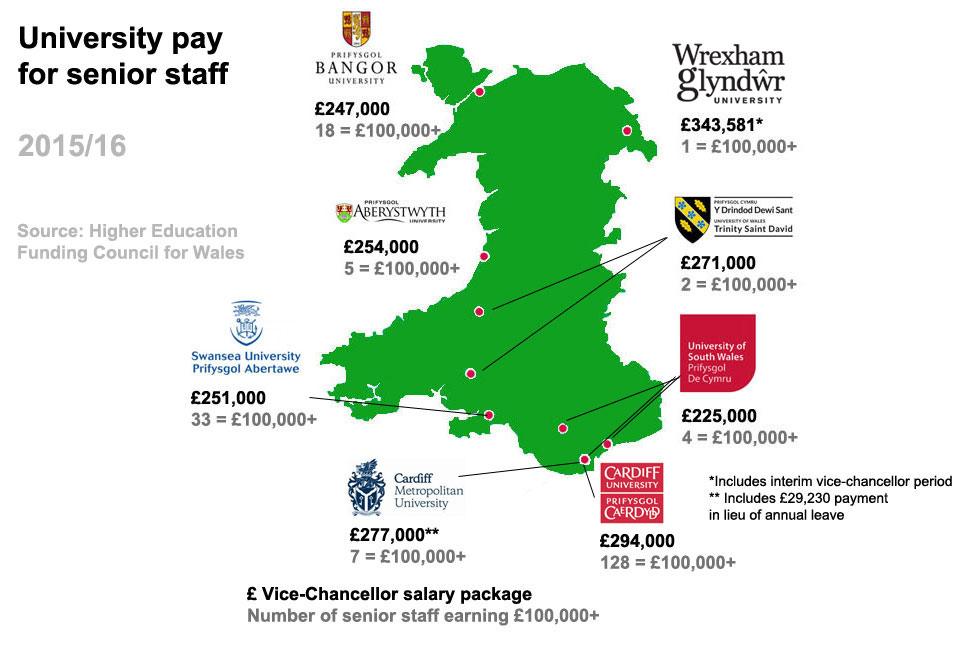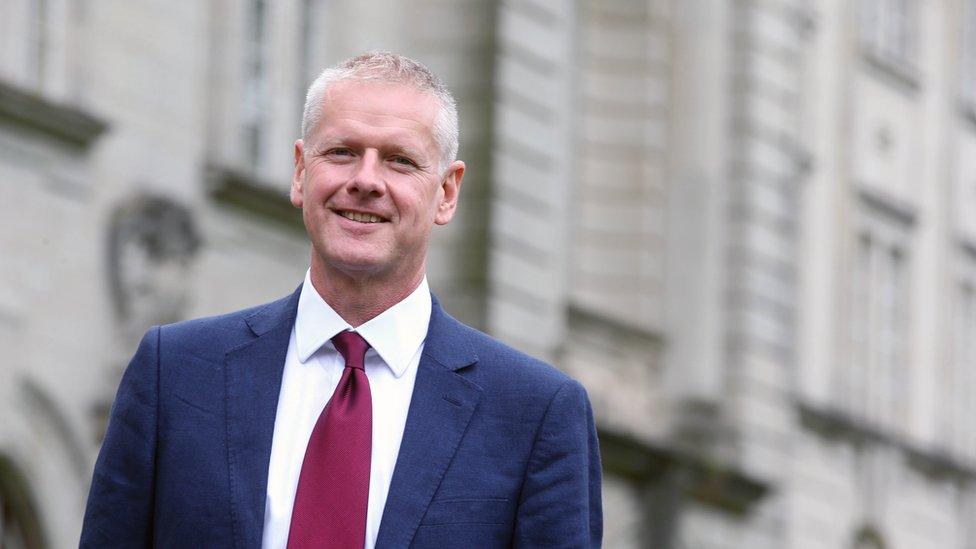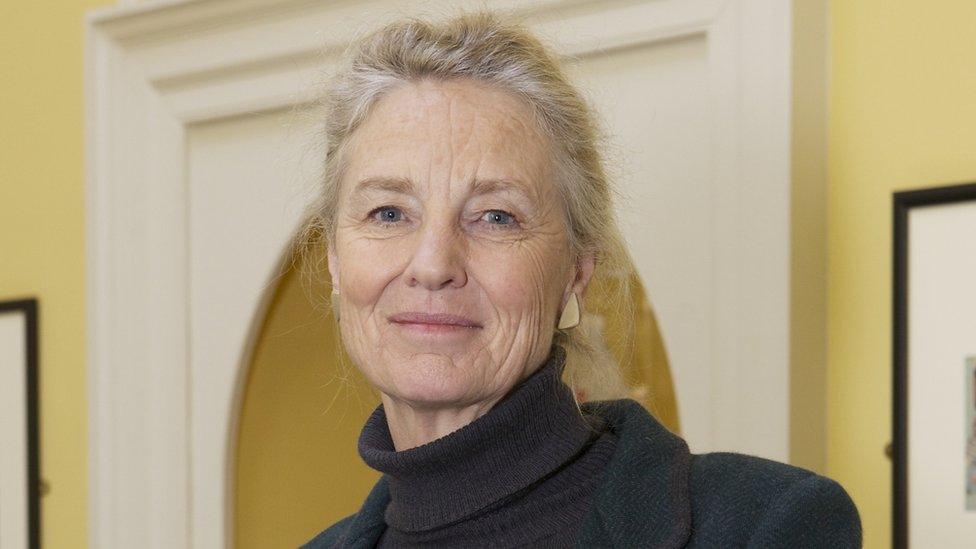Welsh university bosses' pay 'generally lower'
- Published
- comments

Cardiff University has 128 staff paid more than £100,000 a year
The pay of university bosses in Wales is generally lower than at similar UK institutions, a report has said.
But the average annual rise of 3.6% in 2015/16 was higher than the UK-wide figure of 2.5%, according to the Higher Education Funding Council for Wales., external
The vice-chancellor of Cardiff University had the biggest pay and benefits package at £294,000.
Wrexham Glyndwr University paid more than £343,000 including interim arrangements during the academic year.
This covered the last few months of Prof Graham Upton's period in office. He spent 13 months as interim vice-chancellor to bring financial stability after restructuring at the university., external
He had performed a similar role at the University of Cumbria a few years before.
The former vice-chancellor of Cardiff Metropolitan University was the only one in Wales who had a package, excluding pension contributions, higher than the UK average at £277,000.

The rise in salaries of vice-chancellors had been known in October but this latest report also looks at pay of other senior staff.
Cardiff University had by far the largest number of staff paid over £100,000 at 128.
That in part is explained by the numbers of staff in the university's medical school.
A Cardiff University spokesman said the salaries of senior staff reflected "performance and affordability, but also take account of this institution's size and complexity, the scale and diversity of activities".
Swansea University had 33, Bangor had 18 staff paid over £100,000, while the other five universities covered in the report had less than 10.
Concerns have been raised about the pay of vice-chancellors at institutions such as the University of Bath, the University of Southampton and Bath Spa.
The UK's highest paid vice-chancellor, Dame Prof Glynis Breakwell, with a salary of £468,000 said she was stepping down after a row about her pay.

Prof Colin Riordan's salary is independently determined by Cardiff University's remuneration committee
Cardiff University vice-chancellor, Prof Colin Riordan, is responsible for 7,000 staff and 30,000 students and oversees a £500m turnover.
He said there has been "a level of restraint" shown in Wales over pay.
He said: "I can see that it's a concern, but I would say that in Wales the average salary of vice-chancellors is lower than the UK average and the difference between average pay and the senior levels of pay is smaller as well."
Prof Riordan also said the university introduced the living wage in 2014 and there was a range of people who deserved to be paid in a way "that was commensurate with what they do and with what they deserve, and that's what we do".
Hefcw's report said senior pay had to reflect the fact Welsh universities were operating in a UK and international marketplace.
'Greater restraint'
It said: "The pay of university vice-chancellors and other senior staff in Wales needs to be broadly comparable with that for other UK universities, if Welsh institutions are to be able to attract talented and ambitious individuals to these key roles."
The report added that salaries of senior staff in Wales were "broadly comparable", although in all but one instance vice-chancellors' total earnings were below the overall UK mean and largely lower than those for the vice-chancellors of comparable UK universities.
It also identified a gender pay gap for senior staff in Welsh universities though it noted that by July 2016 half of Welsh universities had appointed female vice-chancellors.
The Welsh Government said it was "disappointing" to note the report's conclusions on gender pay equality.
"Institutions have the tools to address these issues and we expect to see rapid improvements," said a spokesperson.
It also said while greater transparency was pleasing, Education Secretary Kirsty Williams expects to see senior leaders "exercise greater restraint on pay."
She has written to Hefcw and Universities Wales - which represents higher education institutions - to reiterate her views and to arrange a meeting for early in the New Year.
- Published18 October 2017

- Published7 December 2017

- Published20 November 2017

- Published29 November 2017